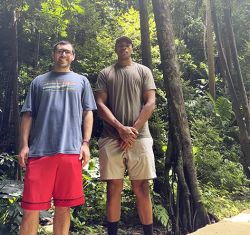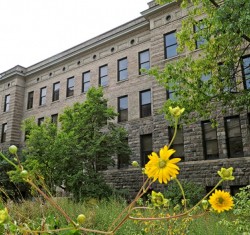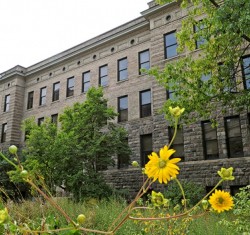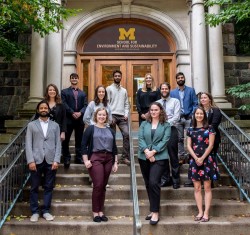
 back to all faculty
back to all faculty
Avik Basu

About
As an environmental psychologist, Avik tackles sustainability challenges through the lens of human cognition, emotions, behavior, and, in particular, information processing. His recent work focuses on climate adaptation in the developing world through scenario planning, differences between experts and laypeople in environmental decision-making, the role environments play in depleting and restoring our capacity to pay attention, and designing environments that simultaneously enhance individual and communal well-being.
Over the last 15 years, he has been part of a collaborative effort to develop a framework, known as Supportive Environments for Effectiveness (formerly called the Reasonable Person Model), to help practitioners from various disciplines create conditions that meet human informational needs. He co-edited/co-authored a book on these topics called Fostering Reasonableness: Supportive Environments for Bringing out our Best.
Avik’s courses include:
- Social Research Methods for Environment and Sustainability (EAS 641)
- Seminar on the United Nations Framework Convention on Climate Change (EAS 501.158)
- SEAS Master’s Project Planning (EAS 701.888)
Since 2015, Avik has directed the University of Michigan delegation to the annual United Nations Climate Conference. He also serves as the faculty advisor for Climate Blue, a student organization that connects international climate policy with local climate action at UM and the surrounding communities. Avik earned a Ph.D. in Environmental Psychology and a Master’s/Bachelor’s in Electrical Engineering, all from the University of Michigan.
Publications
Carpenter, D. D., Sinha, S. K., &. Basu, A. (2020). Green Infrastructure in Michigan: An Integrated Assessment of Its Use, Barriers & Opportunities. Michigan Sea Grant Report, MICHU-20-202, 61 pp.
Maillard, L., Summerlin, T., Wilder, A., Xie, D., Rice, H., Rumschlag, J., Rood, R., Basu, A. (2020). Evaluating the Impacts of Sea Level Rise and Storm Surges on Seychelles' Critical Infrastructure. UNFCCC LAKI Report.
Basu, A., Duvall, J., & Kaplan, R. (2019). Attention Restoration Theory: Exploring the Role of Soft Fascination and Mental Bandwidth. Environment & Behavior, 51(9-10), 1055-1081.
Basu, A., Duvall, J., & Carman, J. (2019). Public perception of causes and impacts of muck and
credibility of associated agencies. In Kashian et al., Where People Meet the Muck: An Integrated Assessment of Beach Muck and Public Perception at the Bay City State Recreation Area, Saginaw Bay, Lake Huron. Michigan Sea Grant Integrated Assessment.
Basu, A., Phipps, S., Long, R., Essegbey, G., & Basu, N. (2015). Identification of Response Options to Artisanal and Small-Scale Gold Mining (ASGM) in Ghana via the Delphi Process. International Journal of Environmental Research and Public Health, 12(9), 11345–11363.
Kaplan, R. & Basu, A. (Eds.). (2015). Fostering Reasonableness: Supportive Environments for Bringing Out Our Best. Ann Arbor, MI: Maize Books.
Basu, A. (2015). Bringing out the best in ourselves. In R. Kaplan & A. Basu (Eds.), Fostering Reasonableness: Supportive Environments for Bringing Out Our Best. Ann Arbor, MI: Maize Books.
Kaplan, R. & Basu, A. (2015). Fostering our common humanity. In R. Kaplan & A. Basu (Eds.), Fostering Reasonableness: Supportive Environments for Bringing Out Our Best. Ann Arbor, MI: Maize Books.
Basu, A., Kaplan, R., & Kaplan, S. (2014). Creating supportive environments to foster reasonableness and achieve sustainable well-being. In T. J. Hämäläinen & J. Michaelson (Eds.), Well-Being and Beyond: Broadening the Public and Policy Discourse. Cheltenham, UK: Edward Elgar.
PhD, University of Michigan (environmental resource, policy, and behavior)
MS, University of Michigan (electrical engineering systems)
BS, University of Michigan (electrical engineering)







